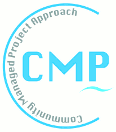Journalists Visited COWASH projects
A team of journalists from Finland visited Finland-Ethiopia bilateral development cooperation projects in Amhara National Regional state in Ethiopia in 24-26 March 2015. The team was accompanied by Ms. Sirpa Mäenpää, Finnish Ambassador to Ethiopia.
Mesfin Gebremedhin, Deputy Head of regional Finance and Economic Development Bureau, welcomed the group and expressed his and his government’s gratitude to the Government of Finland for the support provided since 1994. He mentioned that he has been actively involved in Finland supported WASH projects for a long time. According to his message Finland’s support has made great impact in the region’s access to water supply rate.
Community managed safe water supply facility in Meksegni kebele of Fogera district was one of the sites presented to the journalists. Altogether 14 visitors had a chance to visit a new water point in Alem Sefer Village. More than 270 people has got access to safe water because of this COWASH supported shallow well.
“Our previous situation was very difficult. Because the old water point was so crowded, we had to get up at 3am to line up there. We had to stay there until the daybreak. There was times when we were even attacked by wild beasts such as hyenas,” says Mrs. Hawa Wadajine, chairperson of a Water, Sanitation and Hygiene committee (WASHCO) responsible in managing the community water point.
While meeting and discussing with the beneficiaries, journalists had an opportunity to see the old water source used by the community, the nearby river which often dries up during the dry season. “This was when we had to dig the course of the river to get to the bottom where we usually found dirty water,” says Mrs. Yengus Muchie, controller in the committee. “However, big thanks to those who supported us, now we have safe water in our village. We are healthy and able to send our kids to school as early as it can be,” concludes Yengus who had got sick of waterborne diseases several times in the past.
The water point in Gazo primary school of Alem Tena kebele was journalists’ next stop. The hand dug well which was constructed in 2003 by the grant from the Government of Finland serves 531 students and 14 teachers. “The school is not using this water point as a source for drinking water. The school also grows vegetables. We teach students how to grow vegetables and use it as food. We encourage them to do same at their home,” says Tadilo Mohammed.
Journalists also had an opportunity to visit typical Ethiopian rural household and the Fogera district's water office where they learned about CMP process. At the end, visitors said that they are satisfied with the improvements they have witnessed. “The visit went very well and instant feedback from journalists has been throughout very positive,” says Oksanen Janne, from Embassy of Finland in Addis Ababa.

